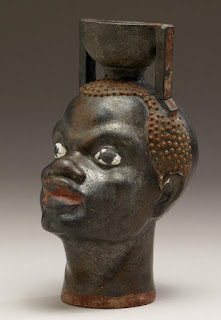Docs reveal Greek Government often interferes in Australian Policy on Macedonia
Following the Australian Macedonian Human Rights Committee’s announcement of the cancellation of the 1994 “Slav Macedonian” directive which renamed the Macedonian community in Australia, the English edition of the Melbourne based newspaper Neos Kosmos published a highly distorted article on the issue. The article quoted several Greek community organisations which reacted to the issue in a typically misleading manner. A local organisation calling itself the “Australian Hellenic Council” (AHC) accused Macedonian and Turkish diplomats in Canberra of “open interference” in an Australian policy matter. The AHC claimed that "it is unacceptable for the representatives of foreign governments to actively guide and participate in efforts to determine Australian domestic and foreign policy."
However, Freedom of Information documents released to the Australian Macedonian Human Rights Committee (AMHRC) demonstrate interference in Australian policy on Macedonia by another foreign government. Internal correspondence from the Minister for Foreign Affairs to the Minister for Immigration and Citizenship on the issue of Macedonia’s name, reveals that, "the Department of Foreign Affairs and Trade frequently receives representations from the Embassy of the Republic of Greece asking that the Australian Government maintain its present approach" (Correspondence dated 8 October 2008).
The Australian Macedonian Human Rights Committee (AMHRC) wonders whether the Australian Hellenic Council and other Greek community organisations will also condemn this “open interference” in Australia’s domestic and foreign policy?
Of course, the interference of Greece in Australian domestic and foreign policy is nothing new. In fact this was detected almost twenty years ago by Dr Andrew Jakubowicz, Professor of Sociology at the University of Sydney when he noted that:
"…the Australian government had allowed itself to be manipulated by ultra-nationalists in the Greek community in particular, under direction or stimulation from Athens, into attacking one of the basic principles of multiculturalism, the right of groups in Australia to identify themselves as they believed was most appropriate." (A. Jakubowicz, “The State, Multiculturalism and Ethnic Leadership in Australia” 1995, page 8)
Dr Jakubowicz also found that:
"In 1992/1993 the Greek government, anxious to ensure diasporic solidarity and support in what it feared would be a potential conflict in the Balkans, brokered a rapprochement in Athens between the Australian Communities and the Archdiocese. With that rapprochement in place, the former left/right tensions could be suppressed and replaced by a call to Hellenic unity, an ultranationalist ethnically based reprise that could transcend more rational political debates and seek for an emotional trigger to release the growing political clout of the Greek community in Australia. There is a strange twist in the situation, in that it is the multiculturalist environment of Australia that has legitimised the retention of Hellenic cultural politics here, while in Greece this same Hellenic cultural politics rejects a multicultural acceptance of diversity (e.g. Macedonian language and culture) within that country." (A. Jakubowicz, “The State, Multiculturalism and Ethnic Leadership in Australia” 1995, page 8)
The Australian Macedonian Human Rights Committee (AMHRC) calls upon the Australian Government to free itself of the destructive influence of the Greek Government on its policy in relation to Macedonia's name. Australia should now move to adopt a policy on this issue which in accordance with the position of over 130 countries (two-thirds of UN members) and all of its major allies (eg. USA, UK, Canada) as well as other powers such as Russia, China and India, i.e. to recognise the official name of the Republic of Macedonia in bilateral relations.
The AMHRC also reiterates its call upon the Macedonian government to end all name "negotiations" with Greece.



